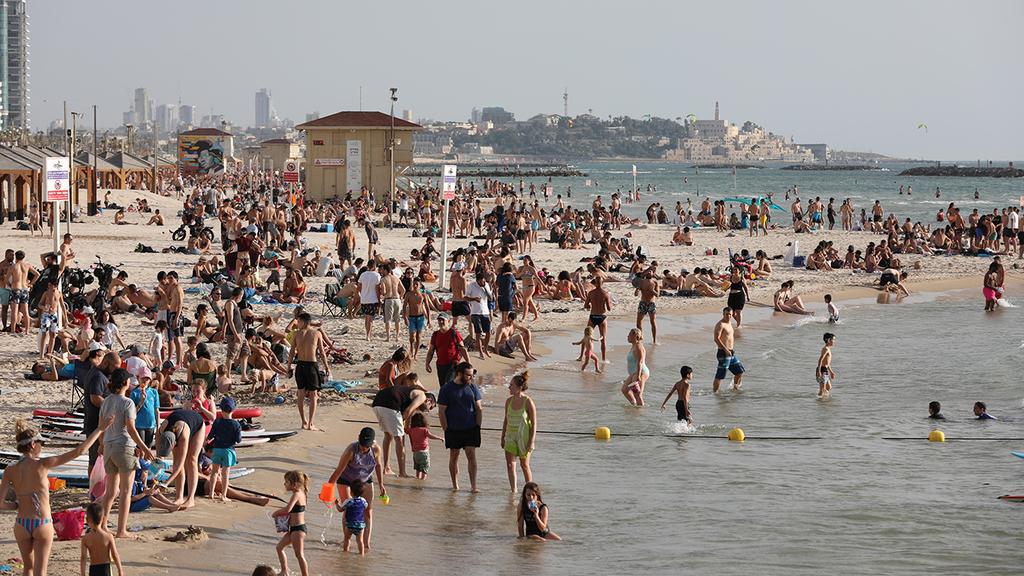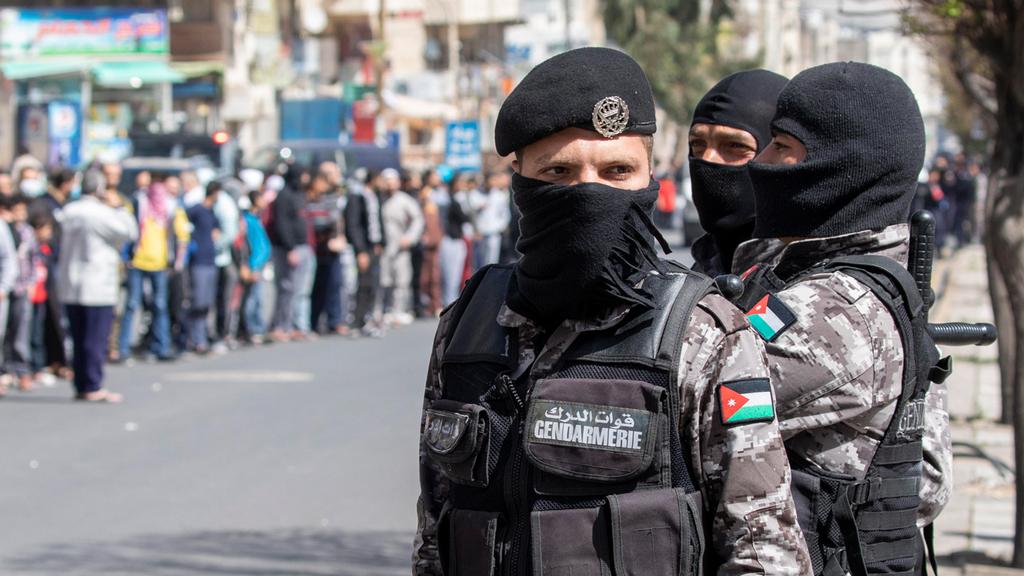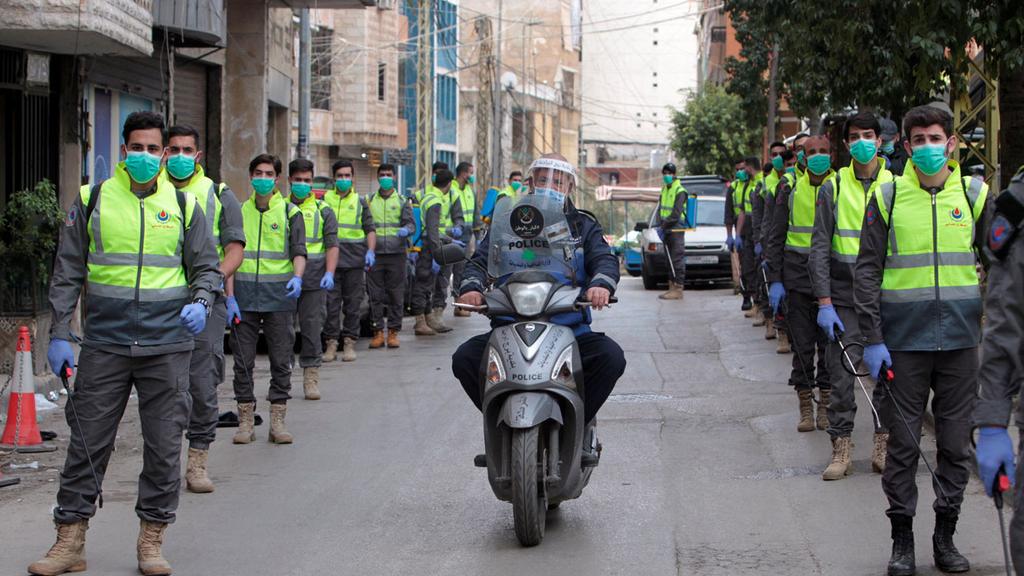More than half of Israelis (54.5%) believe that there will be a “second wave” of COVID-19 – the disease caused by the coronavirus pathogen – and 39% think that the reopening of the economy has been rushed, according to a recent survey released by the Israel Democracy Institute (IDI).
Furthermore, the survey by the IDI's Guttman Center for Public Opinion and Policy Research found that the public’s perception of Prime Minister Benjamin Netanyahu’s handling of the health crisis is changing.
“At the mid-point of the coronavirus, most Israelis expressed trust in Netanyahu,” said Dr. Or Anabi, a researcher at the Guttman Center. “In the last month, you can see a pretty steep decline in this trust.”
The drop in confidence also applies to Finance Ministry officials, whom 38% of Israeli respondents expressed trust in, down from 47% in April. By contrast, 61% of those surveyed held Health Ministry experts in high regard.
4 View gallery


Israelis pack out Tel Aviv beach during a heatwave last weekend, despite the seafront being closed at the time due to social distancing restrictions
(Photo: EPA)
While Israel has not seen a surge in new cases, even as most business sectors have resumed operations, the IDI survey shows that many remain on edge.
“We see people going to the beach and restaurants have reopened. It feels like we can go on with our lives, but no,” Anabi says. “There are still large amounts of Israelis afraid [of contracting] COVID-19."
“In people’s minds,” he says, “the coronavirus is still here.”
Other nations in the Middle East are also under economic pressure to allow businesses to reopen.
4 View gallery


Jordanian police stationed on the streets of Amman amid the coronavirus outbreak
(Photo: EPA)
Having reported 684 coronavirus cases and nine resulting deaths as of Friday, Jordan has managed to contain the outbreak better than most of the region's nations.
Nevertheless, the government on Thursday night imposed a three-day nationwide shutdown after a spike in new diagnoses.
“On the whole, [Jordanians have] adhered to the measures and appear to either trust the government or fear the repercussions of violating the restrictions,” says Will Todman, an associate fellow in the Middle East Program at the Center for Strategic and International Studies in Washington, D.C.
Notably, Jordan is fining violators of health regulations between 100 and 500 Jordanian dinars ($140-$700).
4 View gallery


Hezbollah operatives spraying disinfection on the streets of Lebanon during the coronavirus pandemic
(Photo: Reuters)
Meanwhile, Lebanon on Thursday extended its lockdown until June 7, whereas Iraq implemented a two-week shutdown in parts of Baghdad after the easing of regulations in both countries increased the spread of the contagion.
“The [United Arab Emirates] has also re-imposed [various] restrictions and raised fines for violations in recent days,” Todman says.
“Authorities are particularly worried about a new wave of cases as people celebrate Eid,” which fell at the weekend and marked the end of the Muslim fast month of Ramadan.


